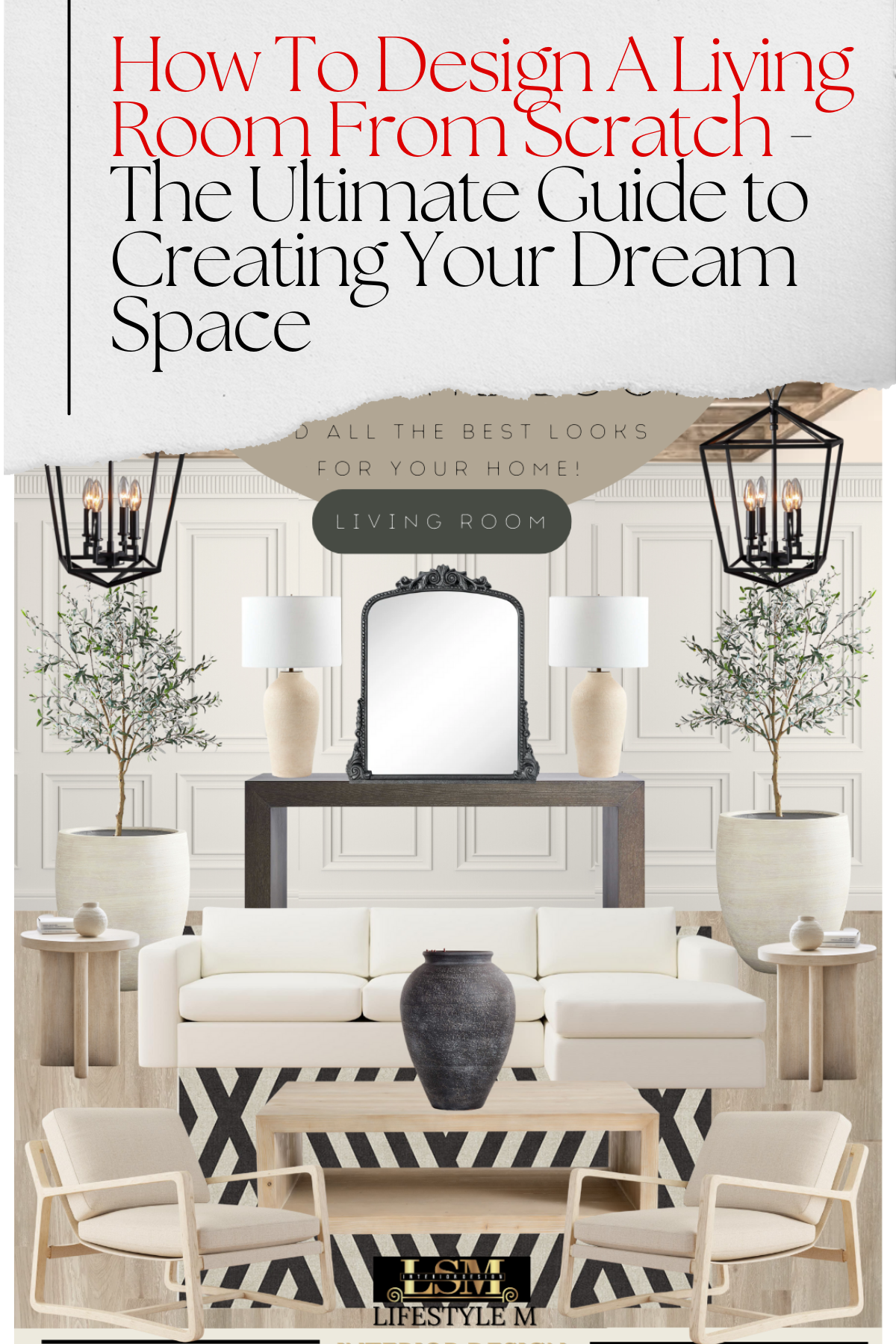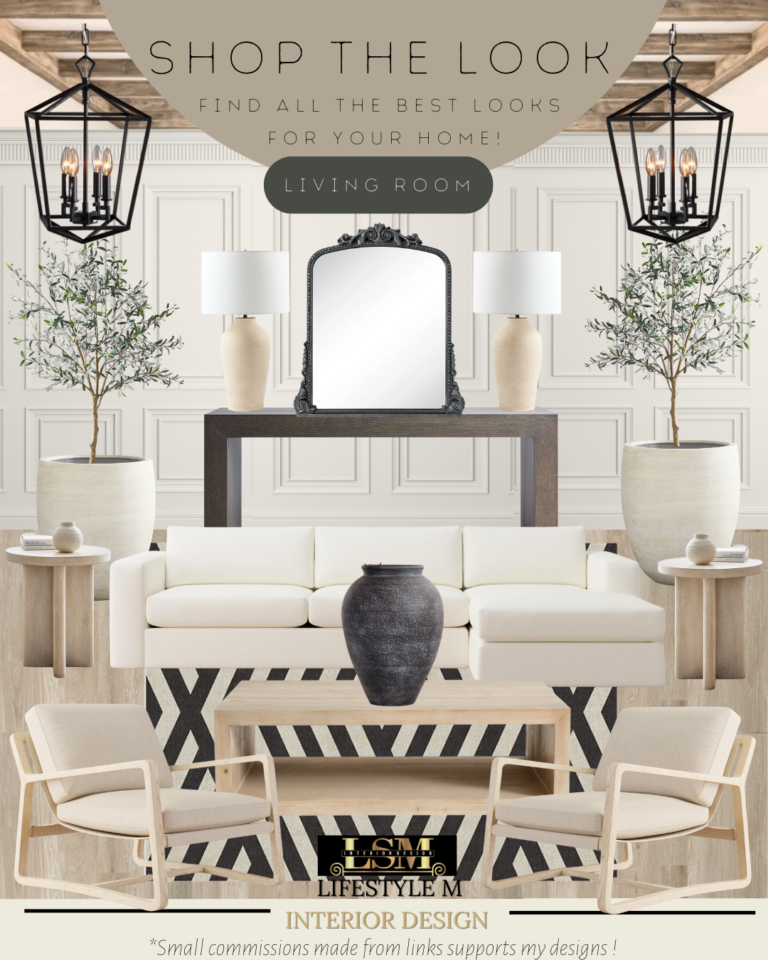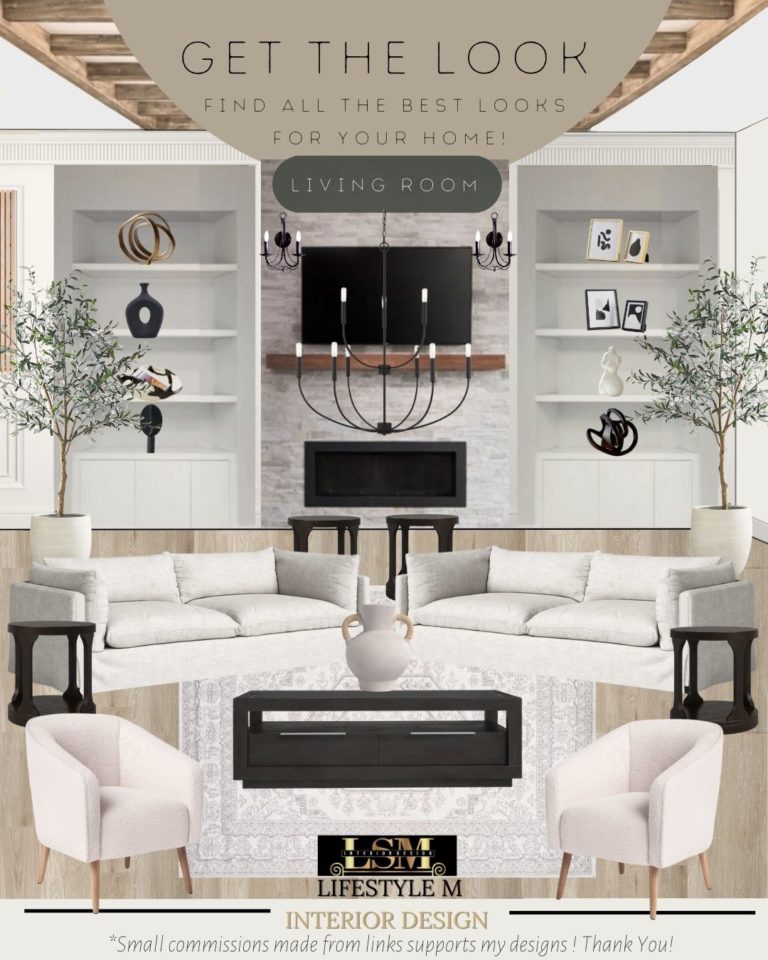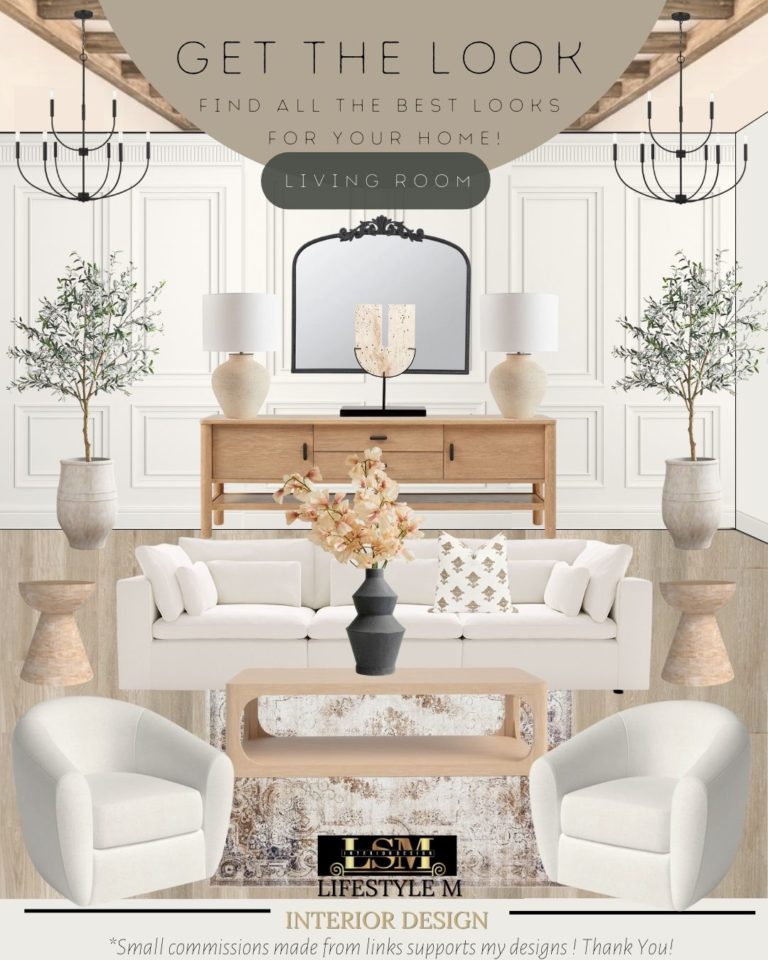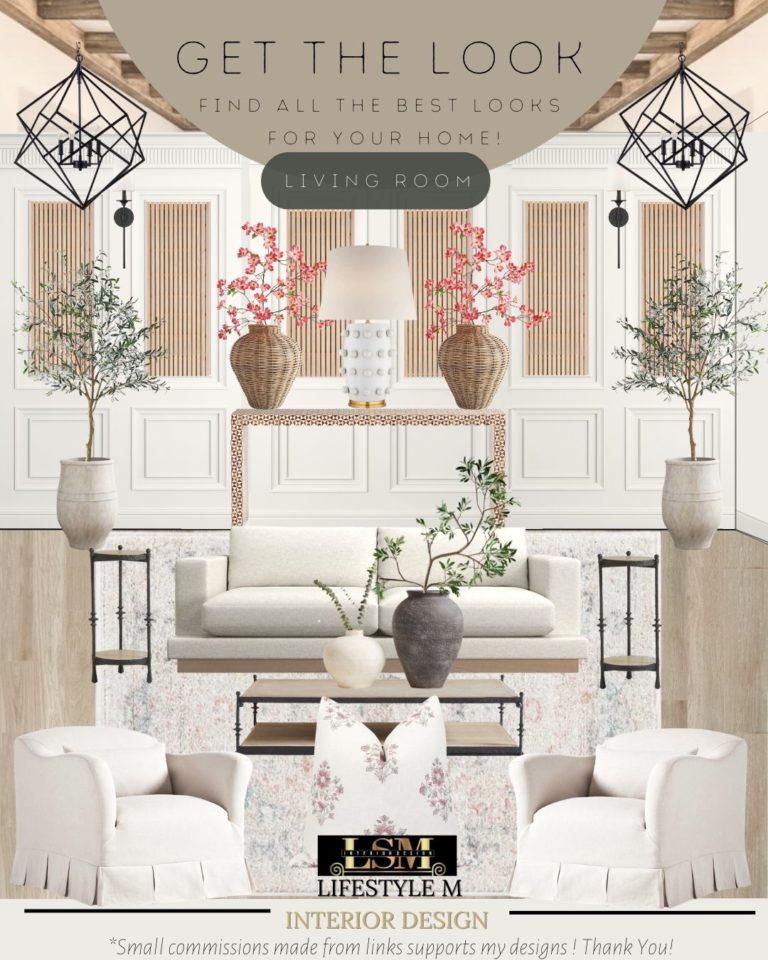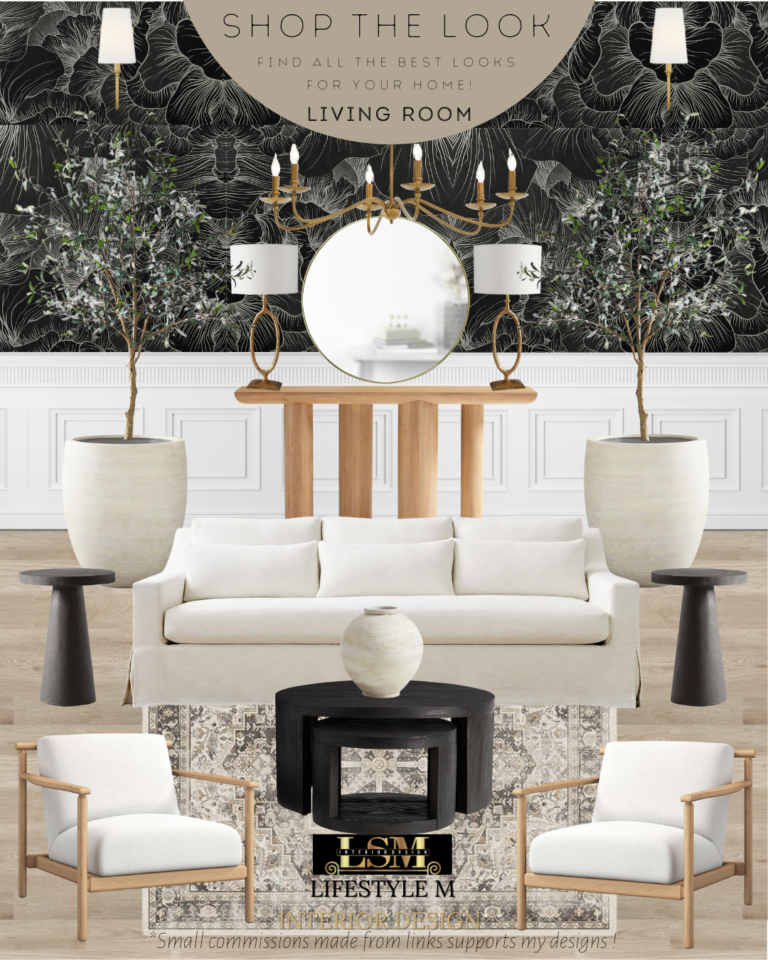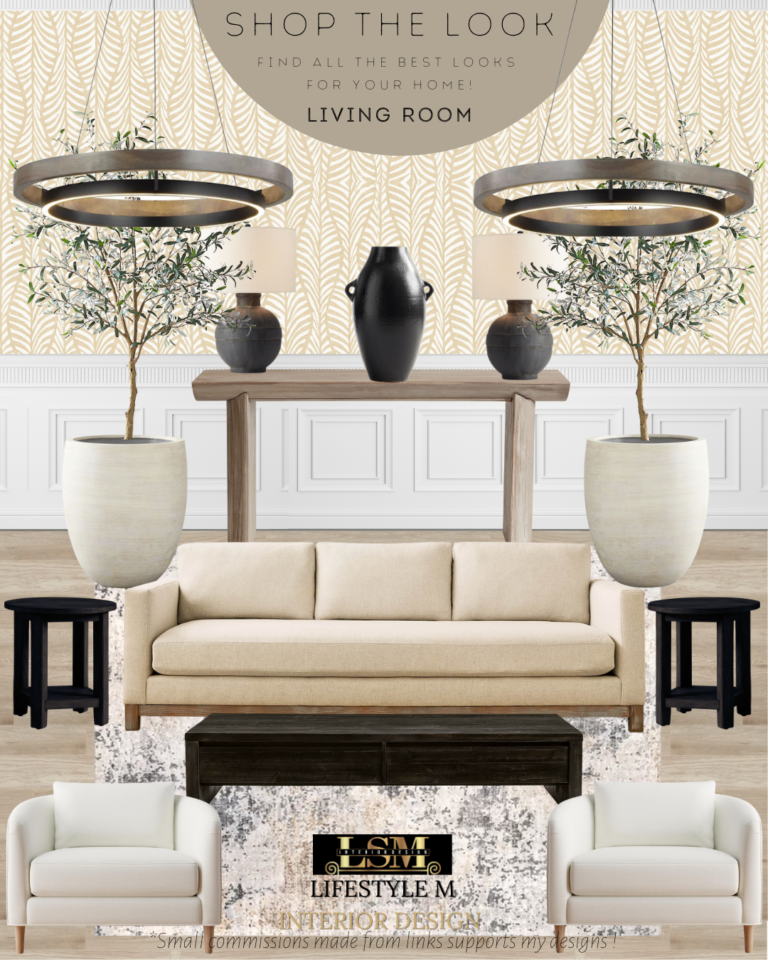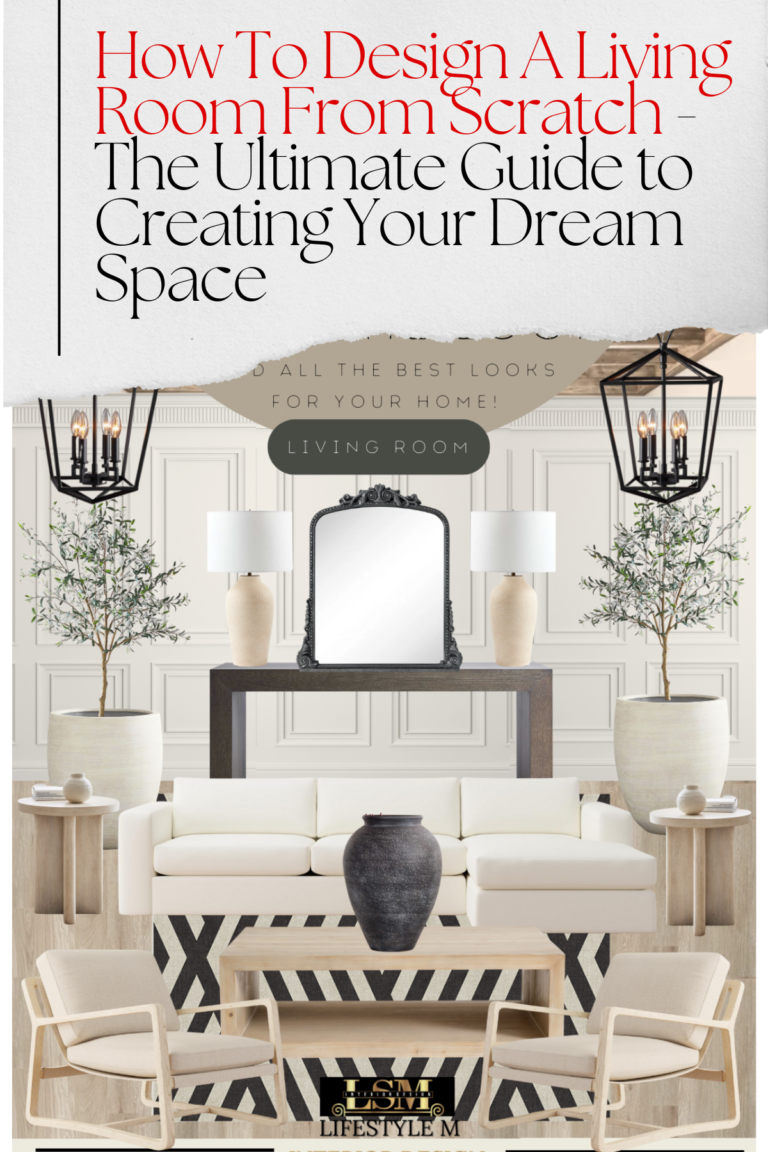
Lifestyle M Interior Design
How To Design A Living Room From Scratch - The Ultimate Guide to Creating Your Dream Space
The living room is the heart of the home, where families gather, friends socialize, and relaxation takes priority. Whether you’re starting from scratch or revamping an existing space, it’s important to find the perfect balance of style, comfort, and functionality. In this comprehensive guide, we will explore living room design ideas, from layout and furniture arrangement to color schemes and lighting, to help you create the perfect space for your lifestyle.
1. Establish Your Living Room’s Purpose
Before diving into the design process, it’s essential to consider the primary function of your living room. Will it be a space primarily for relaxation and conversation, or will it also serve as a home theater and play area for kids? Understanding the intended use of the space will help guide your design decisions and ensure the room meets your needs.
a. Consider Your Lifestyle
It’s essential to create a living room design that reflects your lifestyle and accommodates your family’s needs. For example, if you have young children, avoid fragile materials like glass or easily stained fabrics. Instead, opt for durable and family-friendly options like wood furniture and washable fabrics. Don’t be afraid to mix and match styles, as this will create a unique and personalized space.
b. Factor in Existing Features
Take note of any existing architectural features in your living room, such as fireplaces or built-in shelving. These elements can serve as focal points and influence your furniture arrangement and overall design.
2. Plan the Living Room Layout
The layout of your living room is crucial for creating a functional and inviting space. Consider the size, shape, and orientation of the room, as well as any existing architectural features, when planning your layout.
a. Create Zones for Different Activities
In larger living rooms, it’s helpful to create distinct zones for various activities, such as a reading nook, a workspace, or a children’s play area. This will help to maximize the room’s functionality while maintaining a cohesive design.
b. Consider Furniture Placement
When arranging furniture, be mindful of traffic flow and conversation areas. A well-planned layout will allow for comfortable movement throughout the space and promote easy communication between seating areas.
c. Measure and Sketch Your Space
To ensure the perfect fit for your furniture and accessories, measure your living room and create a scaled floor plan. This will help you visualize different layout options and make the best use of your space.
3. Choose the Right Color Scheme
Your living room’s color scheme plays a significant role in setting the mood and atmosphere of the space. Consider the room’s size, natural light levels, and your personal preferences when selecting colors.
a. Light Colors for Small or Dark Rooms
In general, lighter colors can make a small or dark living room feel larger and brighter. Opt for pale shades of white, cream, or soft pastels to create a spacious and welcoming atmosphere.
b. Bold or Dark Colors for Larger Rooms
If you have a larger living room, don’t be afraid to experiment with darker or bolder colors. These shades can create a cozy, intimate atmosphere and make a statement in your space.
c. Coordinate Colors Across the Room
Once you’ve chosen your main room color, select complementary accent colors to create a harmonious and cohesive design. Use these accent colors in smaller doses, such as on throw pillows, artwork, or decorative accessories.
4. Decide on Wallpaper or Paint
While both wallpaper and paint can create stunning effects in your living room design, it’s essential to understand the benefits and drawbacks of each option.
a. Wallpaper for Added Texture and Pattern
Wallpaper can introduce intricate patterns, vibrant colors, and rich textures to your living room design. However, be mindful of large-scale patterns in smaller rooms, as they can overwhelm the space. If you are looking for the perfect wall paper, Etsy has some of the best and affordable collections of them. Check them out here.
b. Paint for Easy Updates and Color Blocking
Paint is a versatile and budget-friendly option for living room walls. It allows for easy updates and color blocking to create visual interest. Additionally, paint can be used to manipulate a room’s proportions, such as using vertical stripes to make a room feel taller or horizontal stripes to make it feel wider.
5. Select Practical Living Room Flooring
Your living room flooring should be both durable and visually appealing. Popular options include hardwood, laminate, carpet, and natural stone. Consider factors such as maintenance, comfort, and cost when selecting the right flooring for your space.
a. Hardwood and Laminate for Durability and Style
Hardwood and laminate flooring offer timeless style and durability. They are easy to clean and can be dressed up with area rugs for added warmth and comfort.
b. Carpet for Softness and Insulation
Carpet is a cozy and practical option for living room flooring. Opt for stain-resistant varieties in darker shades or patterns to hide dirt and stains.
c. Natural Stone for Elegance and Character
Natural stone flooring, such as marble or travertine, can add elegance and character to your living room. However, these materials may require more maintenance and may not be as comfortable underfoot as other options.
6. Invest in Quality Living Room Furniture
When selecting living room furniture, focus on quality and durability. Invest in well-made pieces that will stand the test of time, and avoid trends that may quickly become outdated.
a. Choose Timeless and Versatile Pieces
Opt for furniture that is both stylish and functional. Look for classic designs and versatile pieces that can be easily updated or repurposed as your needs and tastes change. If you guys are looking for some of the best timeless furniture pieces, Crate & Barrel has a great collection.
b. Prioritize Comfort and Support
Your living room furniture should be comfortable and supportive. Test out sofas and chairs before purchasing to ensure they provide the desired level of comfort and fit your body proportions.
7. Optimize Living Room Storage Solutions
Clutter can quickly accumulate in living rooms, so it’s essential to incorporate ample storage solutions into your design.
a. Multi-Functional Furniture
Choose furniture that offers both style and storage, such as coffee tables with shelves or drawers, TV cabinets with storage compartments, and sofas with hidden storage.
b. Open and Closed Storage
Incorporate a mix of open and closed storage in your living room design. Open shelves can display decorative items and personal mementos, while closed cabinets and drawers can hide clutter and everyday items.
8. Illuminate Your Living Room with the Right Lighting
Proper lighting can transform your living room into a cozy and inviting space. Consider incorporating a mix of ambient, task, and accent lighting to cater to different moods and activities.
a. Ambient Lighting for Overall Illumination
Ambient lighting sets the general tone of the room and is usually provided by ceiling fixtures, such as pendants or chandeliers.
b. Task Lighting for Specific Activities
Task lighting is essential for activities such as reading or working and can be achieved through floor lamps, table lamps, or adjustable wall sconces.
c. Accent Lighting to Highlight Features
Accent lighting can draw attention to specific features in your living room, such as artwork, architectural details, or statement furniture. Consider using picture lights, uplighters, or downlighters to create dramatic effects.
9. Enhance Your Living Room with Window Treatments
Window treatments can add style, privacy, and insulation to your living room design. Choose options that complement your overall color scheme and design aesthetic while providing the desired level of light control and privacy.
a. Shutters and Blinds for Versatility and Style
Shutters and blinds offer a clean and contemporary look while providing adjustable light control and privacy. They are available in a wide range of materials, colors, and styles to suit your design preferences.
b. Drapes and Curtains for Softness and Elegance
Drapes and curtains can add softness, texture, and elegance to your living room design. Choose fabrics and patterns that complement your color scheme and consider layering them with sheer panels or blinds for added versatility.
10. Personalize Your Living Room with Accessories and Accents
Accessories and accents are the finishing touches that bring your living room design to life. Incorporate items that reflect your personality, interests, and style to create a space that feels truly unique and inviting.
a. Display Artwork and Photos
Hang artwork and photos that hold personal meaning or complement your color scheme and design aesthetic. Create a gallery wall or group pieces together for a cohesive and eye-catching display.
b. Incorporate Indoor Plants
Indoor plants are an easy way to add a touch of nature and color to your living room. Choose low-maintenance varieties and stylish planters that coordinate with your decor.
c. Layer Textures and Patterns
Layering textures and patterns can add depth and interest to your living room design. Mix and match different materials, such as wood, metal, and textiles, for a rich and dynamic look.
Conclusion
Designing a beautiful and functional living room requires careful planning and consideration of various elements, from layout and furniture arrangement to lighting and accessories. By following these living room design ideas and tips, you can create a space that not only reflects your personal style but also meets the needs of your family and guests. With a thoughtful and cohesive design, your living room can become the ultimate destination for relaxation, entertainment, and making lasting memories.

